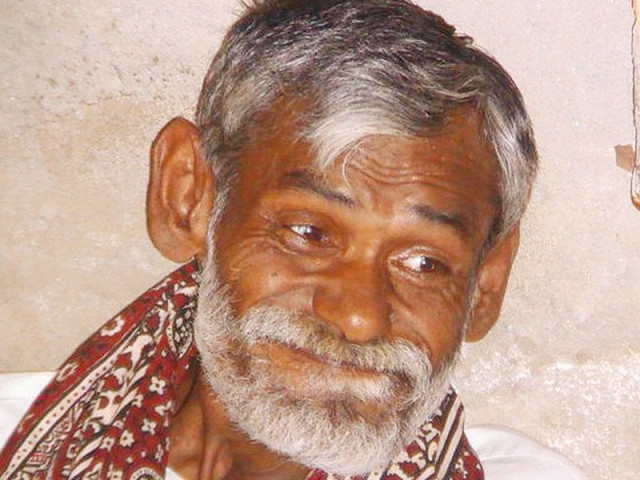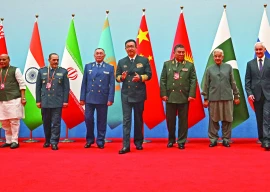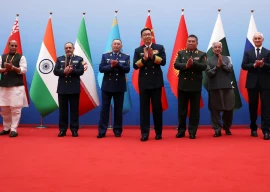
Shakir Shuja Abadi is not well. In fact, he has been bed-ridden since October. Unfortunately, nobody has noticed because he is one of the underrated godfathers of Seraiki poetry, and the voice of the underprivileged. Abadi is only sixty, but a stroke has taken away his voice. He can still write but his health has deteriorated over the years.
“When it comes to Seraiki poetry, Shakir Shuja Abadi is one of the biggest names. Almost every columnist in Seraiki has written extensively on his work. He is in dire shape,” says Nazar Farid Bodla, a student and an apprentice of sorts, who is now officially assigned by Shakir to recite his poetry.

Bodla tells The Express Tribune that it has been two years since the Punjab government stopped providing Abadi a stipend and he has not been able to work. Bodla says that Abadi’s house is small, and the family has no lands or supplementary income. According to Bodla, Abadi has been dependent on hand-outs from an MNA, or if a poetry recital takes place, he writes down poems for Bodla to recite.
“He is not well,” says Waleed Abadi, the younger son of Abadi. Waleed has returned home to be with his father, who in Seraiki folk-culture is a literary figure. Most regional languages are overshadowed by the prominence of Urdu or English, and Seraiki is no exception. Due to this, we forget the hidden geniuses that are yet to be discovered in the heart of our country.
Waleed says only a few friends and fans have visited regularly since his father has been bed-ridden. Shuja’s poetry is still published regularly in a newspaper, whenever the Shakir pens a thought. Most of his life’s work has been built out of experience and the process of life itself.
It is said that his poetry came from a dark place of struggle and uncertainty, because of a stroke that he suffered as a child. He managed to attend a local government school, from where he drop-out after the death of his grandmother.
Forced to work as fruit-seller, he was entrenched in the vicious cycle of making ends meet in Bhawalpur. Poetry was still not in the picture. He then moved to Karachi, where he worked two jobs both as fruit-seller and chowkidar.
“He was forced out of the workforce. He spent his life working, but his health and age didn’t allow it. Poetry came to him when he had nothing,” said Waleed, while his father sat next to him.
Abadi started to recite his thoughts at the local darbar, and by the early 90s he was considered a towering figure of Seraiki culture. His first proper Mushaira was held in 1986 and he then headlined the All-Pakistan Mushaira held in 1991. The last Mushaira before his childhood condition got worse was held in 1994, but he still recited and his following still stood strong.
His poetry is laced with beautiful prose, which seems to put forth riddles regarding the world and society. He discusses themes of honesty, poverty, inequality, and underdevelopment related to the region. His ability to surpass linguistic barriers and appeal to non-Seraiki speakers is very powerful.
There are several popular lines, such as Tu Mehnat Kar, Tay Mehnat da silla Jaane Khuda Jaane (Just work hard and reward for that hard work, only God knows what you will get.) or Tu dewa bal kay rak ja, hawa jaane khuda jaane (Light the lamp, and let the winds decide or fate decide).
It is unfortunate to see talent such as that of Abidi being wasted due to sheer indifference.
Published in The Express Tribune, January 7th, 2014.
Like Life & Style on Facebook, follow @ETLifeandStyle on Twitter for the latest in fashion, gossip and entertainment.


















COMMENTS
Comments are moderated and generally will be posted if they are on-topic and not abusive.
For more information, please see our Comments FAQ